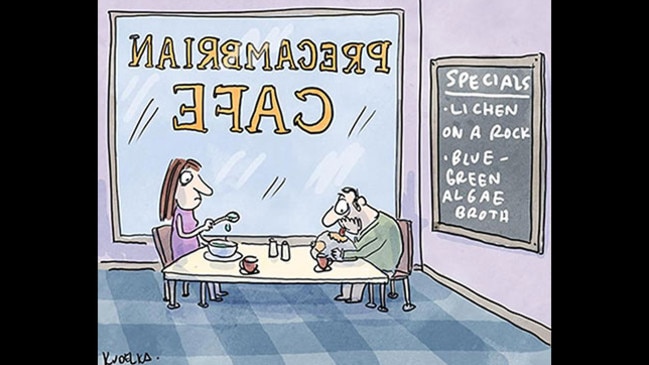Mediterranean diet: a whole new attitude to food
It’s said to fight diabetes and lower the risk of cancer, but what else can the Mediterranean diet do?

So, everyone’s on a diet. The party pies are on the hips, a summer of spritzers is taxing the liver and chocolate eggs are looming. Of course we’re on diets and the diets are as wacky as ever because your diet is part of your personal brand, just ask Pete Evans.
But there’s a perennial — the Mediterranean diet. It’s so popular it pops up on Google search even before the Mediterranean Sea. And what does Google tell you about the sea that became an eating plan?
Well, the latest is that it relieves depression, helps kids with ADHD and stops your brain from shrinking. That’s just this year’s news on it, and that’s apart from the older claims that it helps heart health, fights diabetes, moderates cholesterol, reduces inflammation, fights Islamic State, lowers the risk of cancer and kills free radicals (they sound cool but, like Islamic State, they’re bad). Oh yes, you live longer too.
This diet is magic. It’s a big, fat pill that doubles as a body of water.
But they’re missing something when they tell us to eat more vegetables, fruit, fish, nuts and olive oil with a splashy, splashy of red wine. This is not just about a shopping list of foods. It’s as much about the culture as the calories.
Consider how those Mediterranean people actually consume their diet. First, the food is grown locally — often out the back door. It’s also seasonal, so there’s no freezing, preserving chemicals or vacuum-sealed packaging. If it’s not just out of the ground, it’s not on the plate.
They also eat the sort of foods they’ve always eaten. No, they’re not hung up on mimicking their Paleo ancestors but they have been eating the same foods for centuries and something in humans likes familiar foods, not least because you don’t have to buy new cookbooks.
Now consider how they eat. They eat with friends and family, helping with preparations, gossiping about neighbours and whingeing about Germany. This food is peppered with conviviality.
And think of how long they take to eat it. They take hours — a little aperitivo, a small first course, a hearty main and maybe some canoodling along the way. This is not something hot and greasy wolfed down while you’re stuck in traffic. No, it’s slow food. It’s so slow it takes half the working day (which is part of the attraction).
Now, this might explain why peeps in Italy, Greece and so on get healthy, but how much of that translates when you come home from the GP with a list of approved Mediterranean foods and an order to get your gut in order?
Well, you’ll probably start eating differently. You will have to source fresh ingredients, so you’ll learn who sells the best produce and you’ll get to know them because you’ll be back tomorrow. Then you’ll learn how to cook like an Italian, so you’ll chop, marinate, preserve, season and mince, and all the time you will be tasting but you won’t be snacking. After all, you’re not going to wolf down an unwashed radish while you wait for Borlotti beans to soften.
And because you have to spend more time cooking, you’ll want to share it with friends or family; and because it feels sort of special, you might open a bottle of wine — not a quaffer but a wine worthy of sharing with Caesar.
So, what happens when we switch to the Mediterranean diet is we change our whole way of eating. When we give up fast food for slow food, we also give up fast eating for slow eating. When we spend time with food, we develop respect for it — where it came from, how it behaves and how many hours it can occupy. And when we spend time with family and friends, well, we learn who our real friends are.
But the most obvious takeaway from this diet is that you spend so much time preparing it for something worthy of an Instagram shot that you won’t have time to snack or lie in front of the TV or search online for your next European holiday. The diet has become your day and, along the way, it’s consumed your leisure, rearranged your priorities and eaten into your productivity. Welcome to the Mediterranean, a great sea, magic diet and a lifestyle like a holiday — shame about the economy.



To join the conversation, please log in. Don't have an account? Register
Join the conversation, you are commenting as Logout